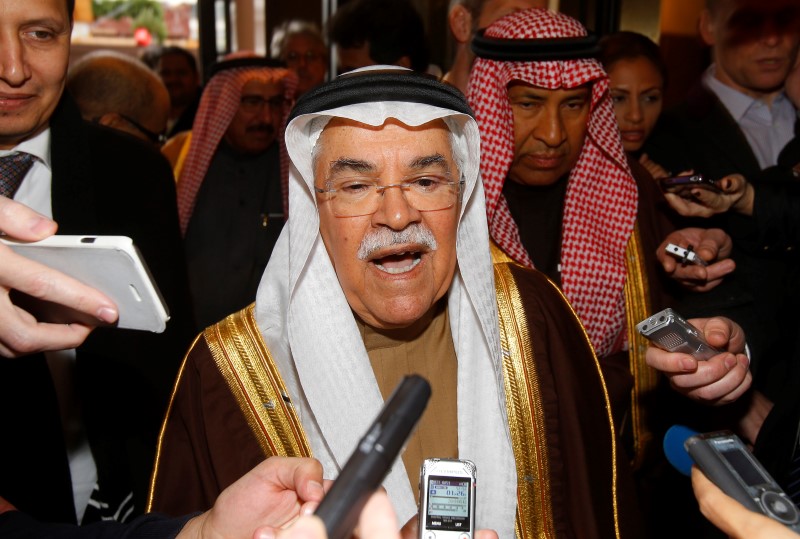By Rania El Gamal and Reem Shamseddine
VIENNA (Reuters) - OPEC is heading for a tough meeting this week, delegates and officials said on Tuesday, as country members pump record volumes amid an uncertain demand outlook and as the prospects of a U.S. interest rate hike could push oil prices even lower.
"It will be tough," one OPEC source said, referring to the meeting in Vienna on Friday, which is widely expected by OPEC insiders and watchers to stay the course and roll over existing output policies.
Saudi Arabia's oil minister Ali al-Naimi rebuffed questions after his arrival in Vienna on Tuesday. When asked if Saudi's strategy of defending its market share is working, Naimi responded with questions: "Which strategy?.. Who said we are keeping market share?"
Many non-Gulf OPEC delegates have complained the Saudis impose their views on the organisation.
On Tuesday, Naimi said of the meeting: "We will be there, we will listen and then decide."
A year ago, Saudi Arabia pushed through an OPEC decision to pump more oil and defend market share against surging rival suppliers. The policy has somewhat reduced the pace of the U.S. shale oil boom and non-OPEC supplies are set to decline next year.
But it won't be enough to stop the glut from increasing as non-OPEC Russia and OPEC member Iraq have steeply raised supply.
Oil prices have more than halved to $45 per barrel from as much as $115 a barrel some 18 months ago.
A second OPEC source said he expected more downward pressure on oil prices if the United States raised its interest rates in December, helping the dollar to extend gains from its recent peaks.
He said oil prices could fall as low as $35 a barrel.
DISAGREEMENTS
Several sources pointed to last week's disagreements over the global demand outlook when OPEC's experts met in Vienna ahead of the ministerial meeting this week.
A third source said OPEC's traditional price hawks Iran, Algeria and Venezuela as well as more moderate Ecuador and Iraq have questioned the OPEC secretariat's upbeat demand growth outlook for next year of 1.25 million barrels per day.
They said they thought demand growth would in fact amount to just 1 million bpd, a big slowdown from this year when demand growth is expected to exceed 1.7 million bpd.
Meanwhile, output from top global producers is showing no sign of abating and two OPEC sources said they believed the market would not rebalance before late 2016 or early 2017.
Saudi Arabia's own output edged up in November to 10.25 million bpd despite seasonal patterns which usually reduce demand for crude for domestic burn in winter months.
Iraq's oil exports rose in November to a decades-high average of 3.37 million bpd. Russian oil production hit a new post-Soviet high in October.
Iran, which is expected raise supply next year if sanctions are lifted, sent a letter to OPEC ahead of Friday's meeting urging members to respect the production ceiling of 30 million bpd, the country's Mehr news agency reported.

"OPEC meets on Dec. 4 and we expect the current status quo to persist. Saudi Arabia is in no mood to cut output," analysts from Energy Aspect said in a note on Tuesday.